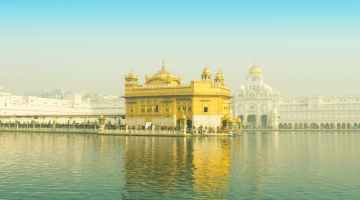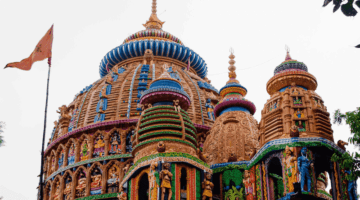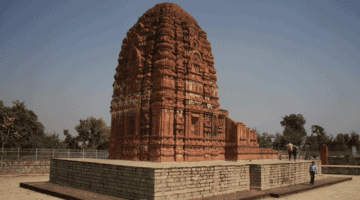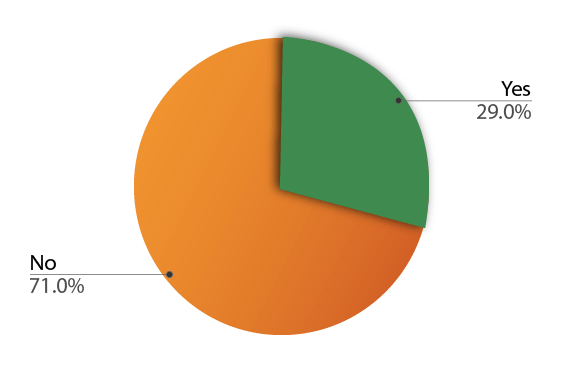Indian State Legality Map
The map below gives you a complete overview of the legal landscape in India. Click on states or Union Territories to learn more about their specific laws and regulations.
(Zoom in on the map to click smaller states, or click the state name abbreviations.)
Gambling Legislation
Legal
Illegal
No legislation
Is Online Gambling Legal in India?
While online gambling isn’t explicitly legal, it isn’t illegal either because there’s no legislation against it.
As a result, online gambling is widely available thanks to the archaic gambling legislation used in most states.
The national gambling act prohibits gambling from so-called “common gaming houses,” but it doesn’t mention online devices.
To clarify, no Bharat player has ever been arrested for playing online casino games at their own discretion in India.
State Gambling Laws
When we say we have created pages for every state and UT, we weren’t kidding. You’ve got 36 unique articles available, one for each state and Union Territory in India.
Seeing as many desi states opt to create their own gambling legislation, understanding how your home-state works with online gambling will mean that you’ll be able to enjoy gambling fully!
Experts in Gambling Laws
It’s a very humble brag, but it’s safe to say that you won’t find any better place for all your gambling knowledge than SevenJackpots.
We’ve created unique gambling law pages for every single state and Union Territory in India while also being credited and quoted by trustworthy sources.
The SevenJackpots team has over 12 years of experience within the iGaming industry, where we’ve worked with high-authority regulated markets such as Sweden, Italy, the US, and more.
What are the Laws for Gambling
Indian gambling law focuses on two main areas: games of chance and games of skill. The Public Gambling Act, 1867 governs these game types.
Every Indian state and UT has had the option to either use the Gambling Act or regulate gambling within the state as they see fit.
This is why some states have banned gambling completely while others have legalised it.
Just remember that, although the law specifies the legality of certain games, it fails to cover the same games when they are in an online setting.
Public Gambling Act 1867
Since the Public Gambling Act was created in 1867, there’s still quite a lot of legislative ambiguity around gambling laws in India.
The act clarifies that only games of skill are truly legal, while games of chance aren’t. Furthermore, the act also clarifies that owning, running, or visiting a “common gaming house” is illegal.
According to the Public Gambling Act, 1867, a gaming house is “any house, walled enclosure, room or place in which cards, dice, tables or other instruments of gaming are kept or used for the profit or gain of the person owning, occupying, using or keeping such house, enclosure, room or place, whether by way of charge for the use of the instruments of gaming, or of the house, enclosure, room or place, or otherwise howsoever.”
Games of Skill
As the name suggests, games of skill are games that require skill to play well.
Rummy is such a game, further confirmed in the 1968 State Of Andhra Pradesh vs K. Satyanarayana case. Poker and chess are other examples of skill-based games.
Just as a professional athlete gets paid for their talent, you are able to play games of skill with stakes and win money in India.
Games of Chance
Games of chance are games where the outcome cannot be affected. Slot games are a prime example, as are roulette and Bingo.
Chance-based games are seen as illegal in India but are still widely available online thanks to the archaic gambling laws.
Recent technology changes such as mobile internet penetration and affordable phones have made playing games of chance online super easy.
Risk Free Casinos
EXCLUSIVE: ₹1.25L + 225 FS Welcome Bonus
- Over 4000 game titles
- PhonePe & UPI
- ₹250 minimum deposit!
Up to ₹1,00,000 Cash Welcome Bonus
- Quiz and win FOR FREE!
- NEW: Android app & Rewards!
- 35x wagering requirement
Get up to ₹1 LAKH over your first 3 deposits!
- Up to 20% Weekly Cashback!
- Play with as little as ₹1
- 35x wagering requirement
Get up to ₹1,00,000 + 50 Free Bets in Aviator
- Fast PhonePe and UPI Payments
- Hindi & English customer support
- ₹300 min. deposit!
In Partnership with Touchstone Partners
The team here at SevenJackpots has years of iGaming experience, but we are not law practitioners.
For that reason, we’ve partnered up with one of India’s most prominent law firms, Touchstone Partners!
Touchstone Partners are experienced in Indian gambling law and will be auditing the content we create, ensuring that what we publish is correct.
How the auditing process works
We believe that in an ever-changing legal landscape like India, it’s important that we stay on top of the gambling laws in the whole country.
To do so, we’ve established an auditing process together with Touchstone Partners:
- We publish our content.
- Touchstone Partners audits the page.
- Amendments are done (if needed,) and the audit box below is added to the audited page.
Gambling Laws News
Gambling laws in India are complex, and states amend their laws from time to time. No matter if they change due to a global pandemic or other reasons, we want you to know about it.
We always strive to provide you with the latest news regarding India’s legal landscape so that you can play in peace.
Sports Betting Gambling Laws
Placing bets on sports such as cricket, football, baseball, etc., is considered a game of chance and is therefore illegal.
One could argue that knowing which teams have the highest probability of creating a winning bet takes skill, but most state governments disagree.
Only two states have decided to regulate sports betting, but online sports betting remains highly available thanks to the previously mentioned archaic gambling laws.
Horse Racing Gambling Laws
Seeing as sports betting is a chance-based game, it is quite surprising that horse racing and betting on the sport falls under skill-based games!
This was confirmed in 1996 in what is known as the Lakshmanan case. According to the Madras High Court, it takes skill to understand the performance of the horse and jockey, and horse racing is, therefore, a game of skill.
Betting on horse racing can be done at racecourses all over India or at approved betting shops.
Games Gambling Laws
So how do you know which games fit the skill category and which fit the chance category? Well, we sincerely wish it was easier than it is!
Except for a few legal cases, not much has been said about specific game types since the initial gambling act was created.
At the end of the day, the most important things to keep in mind are the laws of your state and if you are playing games online at an offshore casino or not!
Slots
Due to the advanced Random Number Generators (RNG) used in slot games, it is impossible to predict their outcome.
Winning jackpots and big wins on slots boil down to landing that one lucky spin.
Roulette
To win at roulette, you need to place a bet on the number where the roulette ball will land on the roulette wheel.
The combination of the wheel’s movement and gravity decides the outcome, which means that you can’t skillfully affect a game of roulette.
Blackjack
Blackjack is actually one of the few casino games where you as a player can affect the game’s outcome depending on your skill.
However, according to the central government, the skills required to play blackjack well aren’t affecting the game enough for the game to be considered one of skill.
Teen Patti
Teen Patti is an interesting game in India. It’s considered a game of chance, but it’s widely accepted around the country anyway.
It’s very common that Teen Patti is played during festivals such as Diwali and Janmashtami, where friends and family play it in order to invoke luck and abundance while also curbing hunger pains from fasting.
Andar Bahar
Andar Bahar is yet another desi card game. With simple rules and a 50/50 outcome, no strategies or skills are required to enjoy playing.
Besides the possibility of placing several side bets, the game remains fairly random, adding it to the category of skill-based games.
Baccarat
Baccarat is, alongside blackjack, one of the most popular card games amongst avid casino gamblers.
That said, the game of Baccarat relies mainly on its statistics, from which no clear conclusions can be made. Unlike blackjack, Baccarat lacks player interaction, making it a game of chance.
Chess
If you were to name one game that takes skill, I’m sure you’d mention chess. A skilled chess player is able to take out their opponent in just a few moves, making it an exceptional example of a skill-based game.
Poker
Considering there are professional poker players and that the game is played against others, it’s clear that poker fits the skill-based game category.
In poker, it’s essential to understand the number of “outs” your hand has, as this will help you understand what cards your opponents have, as well as which cards might show on the table.
State Lottery Laws
In 1998, India created The Lottery Regulations Act. This act allows any state to run a state lottery, and so far, thirteen states have taken this opportunity.
However, foreign online lottery sites offer much larger jackpots, and our guides on state lottery laws explain exactly how to get the best from your online lotteries!
Foreign Online Gambling Sites
There are plenty of online casinos that cater to Indian players today. Some have even tailored their websites to desi players.
Native casino tables, unique promotions, the possibility to play using rupees, and a higher focus on the games we love to play.
Casinos aimed towards India are also very good at handling payments and account verifications in a fast and secure way.
We’ve selected the operators who all offer fair and safe gambling with loads of winning chances!
Up to ₹1,00,000 Cash Welcome Bonus
- Quiz and win FOR FREE!
- NEW: Android app & Rewards!
- 35x wagering requirement
Get up to ₹1 LAKH over your first 3 deposits!
- Up to 20% Weekly Cashback!
- Play with as little as ₹1
- 35x wagering requirement
Get up to ₹1,00,000 + 50 Free Bets in Aviator
- Fast PhonePe and UPI Payments
- Hindi & English customer support
- ₹300 min. deposit!
Tax Gambling Laws
All forms of tax paid in India are regulated according to the Income Tax Act, 1961. As per this act all winnings that originate from gambling are taxed at a flat rate of 30%. Whether online or offline.
Local casinos usually charge a 30% TDS (Tax Deducted at Source) on winnings. Meaning that the amount is already deducted before the winner receives their winnings.
Although states and UT’s might have specific gambling laws. The national tax act makes it easy. The act keeps track of the amount of tax that should be paid from gambling winnings. No matter where you are located.
Did you pay any tax during 2024?
When we reached out to our readers, one thing became clear. Taxation on gambling winnings is a requirement. Although not that many choose to do so.
As a result of various online payment solutions and cryptocurrencies players are able to play and win money online. Without the funds visibly affecting their income.
This results in a loss of tax revenue in India, but regulating the Indian gambling market could resolve this matter.
Conclusion
Although India’s gambling laws look slightly different between states. These are the two main things to keep in mind when gambling online:
- Avoid locations that are considered “common gaming houses.”
- States such as Andhra Pradesh, Telangana, and Karnataka have strict laws against online gambling. You’ll play at your own risk from these states, even when playing online.
However, India is an ever-changing country, and several states have amended their laws to reflect today’s gambling habits better.
This means that SevenJackpots is your one-stop-shop for everything related to online gambling law and how to keep playing online with stakes from India.
Disclaimer: This material is for general information only and is not intended as legal advice and no duty of care is owed to any reader. The readers of this material are requested to engage their own legal counsel in order to make any legal or business decisions and to obtain legal advice specific to them.
































